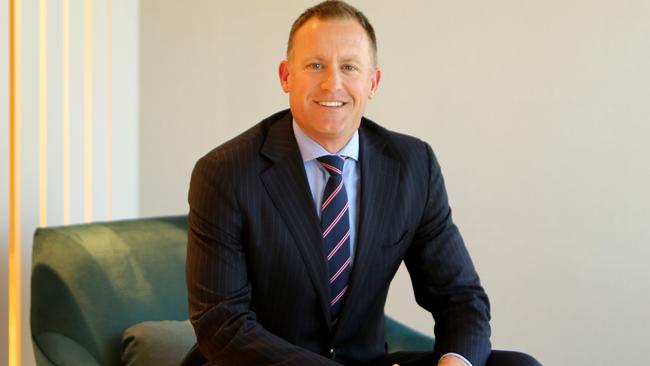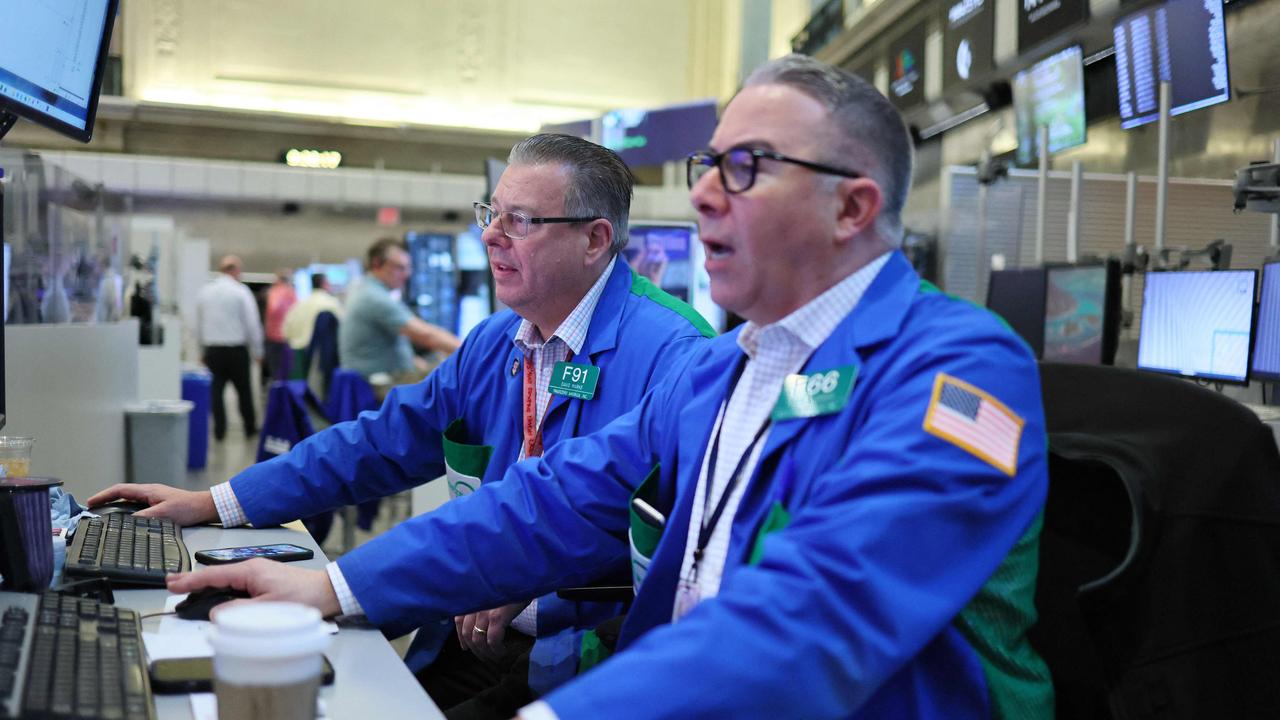Fund managers urge caution amid stockmarket volatility
Fund managers are cautioning that care must be taken when buying stocks in a volatile environment.

After the most panicked selling in markets since the global financial crisis, investors are braving the turmoil to hunt for bargains. But fund managers are cautioning that care must be taken when buying in a volatile environment.
“We always keep a bit of powder dry for moments like this, so we’ve got a bit of cash we can deploy,” Contact Asset Management portfolio manager Tom Millner told The Australian.
Sydney Airport, Transurban and BHP are among the companies that look attractive at current levels, Mr Millner said, because “they’re good quality long-term holdings and we’ll be comfortable holding the position in the portfolio for a long time”.
Healthcare, likewise, looked more resilient in the current market than some other sectors, he noted, as he called out Sonic Healthcare, Ramsey and Invocare as potential opportunities.
Mr Millner, whose Contact Asset Management has about $1.2bn in funds under management through its oversight of listed investment companies BKI and URB Investments, said BKI was currently holding about 5.5 per cent cash and that valuations of potential buys “had to be good” because a lot of them were now trading ex-dividend.
“The reality is there was a huge bubble effect on some of these valuations (before the market rout). Stocks trading on 40, 45 times price earnings multiples just weren’t sustainable,” Mr Millner said.
The sharemarket plunged 7.3 per cent on Monday, bringing it just shy of bear market territory as a crash in oil prices and fears over the COVID-19 coronavirus sent investors rushing to safety. It gained 3 per cent on Tuesday amid hopes of stimulus packages from the federal government as well as from governments overseas.
Further price falls may be ahead if earnings take a hit due to the COVID-19 virus, Mr Millner said. “If (companies) miss earnings after this third-quarter impact, we could see some further downgrades to valuations and obviously subsequent price falls from there,” he said.
SG Hiscock portfolio manager Hamish Tadgell is similarly cautious on the outlook and is watching for earnings downgrades in the coming “confession season”.
“I expect a lot of companies will be tracking below budget and will come out and downgrade their earnings in April and May,” Mr Tadgell said. “Typically consensus earnings have historically been cut by 2 per cent between this time of year and the full-year results. I’d expect that to be much larger this time around.”
On the prospect of further share price hits due to earnings downgrades, Mr Tadgell said it would depend on what each company told the market. “We saw Qantas come out today and cut their capacity 25 per cent and the stock is up 6 per cent. Clearly, there’s a fair bit factored into the share price already,” he said.
Like Mr Millner, Investors Mutual senior portfolio manager Hugh Giddy sees a lot more value in the sharemarket following the recent rout and is preparing to buy.
“You would imagine the (sharemarket) hit will be temporary. So we’re focused on deploying cash. We have cashed into companies with strong market positions and good balance sheets that have been sold off,” Mr Giddy said.
“Selectively, when you think a company is impacted, but the impact will be not that severe and it has a strong balance sheet, that’s where we see the best buying opportunities, your current market.”
My Giddy, who is co-manager of Investors Mutual’s Australian Share Fund and also the fund’s head of research, said he was avoiding technology stocks.
“Technology has been so impacted because that is where a lot of speculation was, with the very high valuations,” he said.
Likewise, he is cautious on travel companies because of the “lasting impact” of the coronavirus on travel businesses.
Instead, he is looking at companies in the gambling space.
“People are worrying about the Chinese highrollers not coming to Australia,” he said. “That’s a valid worry, but the proportion of profits attributable to tourists is relatively small; 5-10 per cent. Now, that has an impact, but if the balance sheet is strong, you can deal with that.”
The crash in the oil price would be another headwind for local energy companies, the fund managers warned.
“Oil below $US40 becomes interesting from a whole swag of issues,” Mr Millner said. “You’ve probably got coal, oil and gas now looking fundamentally cheap because of the supply/demand issue and that means you’ll get pressure on the cost of renewables going forward. The cost of renewables on $US40 oil looks more difficult, definitely.”
Benchmark oil prices crashed 25 per cent on Monday, dropping to their lowest level since early 2016 and recording their biggest one-day percentage decline since January 17, 1991, when oil prices fell at the outset of the US Gulf War. They rebounded slightly on Tuesday, gaining about 7 per cent.
BKI currently holds Woodside, which slumped 18 per cent on Monday and gained a little over 2 per cent on Tuesday. “It’s obviously taken a hit but longer term they’ve got some great projects coming on,” Mr Millner said.
Mr Tadgell said the volatility had been “quite extreme, and you’ve had extraordinary moves in big cap stocks”.
“You often expect those types of moves in smaller stocks rather than top 20 stocks,” Mr Tadgell said. “It looks like there’s a structural change potentially occurring and the market has priced that in very quickly.”
Some of the local energy companies may have to raise capital, he warned.



To join the conversation, please log in. Don't have an account? Register
Join the conversation, you are commenting as Logout